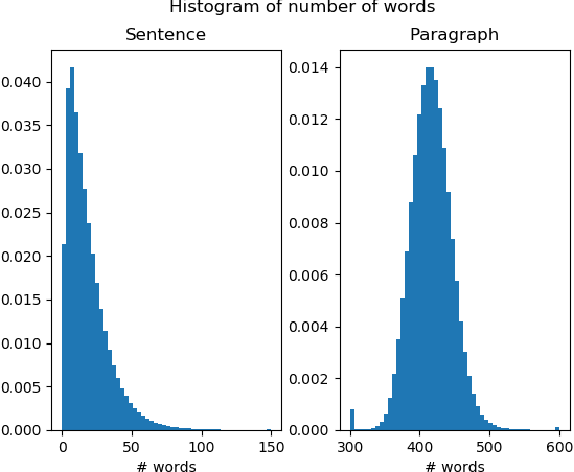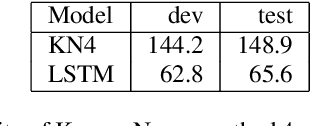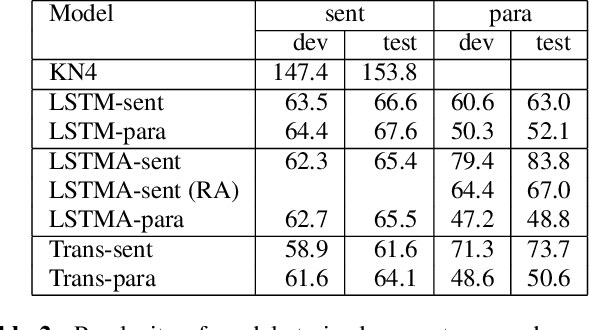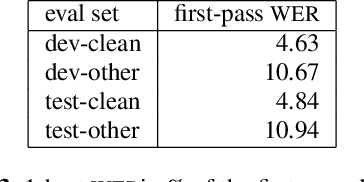Long-span language modeling for speech recognition
Paper and Code
Nov 11, 2019



We explore neural language modeling for speech recognition where the context spans multiple sentences. Rather than encode history beyond the current sentence using a cache of words or document-level features, we focus our study on the ability of LSTM and Transformer language models to implicitly learn to carry over context across sentence boundaries. We introduce a new architecture that incorporates an attention mechanism into LSTM to combine the benefits of recurrent and attention architectures. We conduct language modeling and speech recognition experiments on the publicly available LibriSpeech corpus. We show that conventional training on a paragraph-level corpus results in significant reductions in perplexity compared to training on a sentence-level corpus. We also describe speech recognition experiments using long-span language models in second-pass re-ranking, and provide insights into the ability of such models to take advantage of context beyond the current sentence.
 Add to Chrome
Add to Chrome Add to Firefox
Add to Firefox Add to Edge
Add to Edge